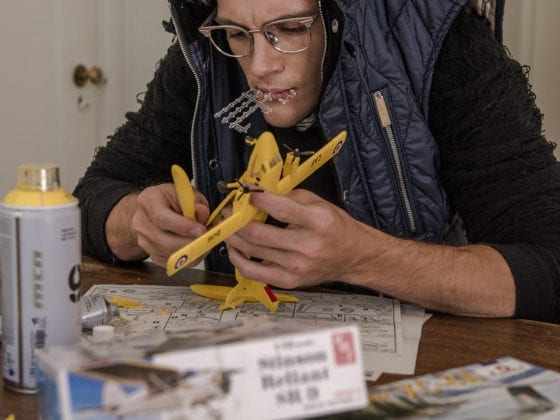As a couples therapist, it may not surprise you that I see many couples struggling with conversations and disagreements surrounding the topic of money.
It’s a classic fight that couples have, like loading the dishwasher, asking for directions and driving. Money is just one of those things we expect couples to disagree about. However, what may surprise you is the “why.” Why is it that finances can be a difficult topic with your significant other? Once we identify the reason, we can understand more clearly how to talk to our significant other about money in a way that propels the conversation forward positively.
[Money] is a classic fight that couples have, like loading the dishwasher, asking for directions and driving.
Money is a topic that has many layers underneath it. Like the tip of the iceberg, money sits on top and is simply one part of the story—the part that we can see. However, underneath the water, like the base of the iceberg hidden from immediate view, are layers of personal experience, family history, culture, beliefs and values surrounding money.
Money is just one way we express our own history and background. When it comes to the topic of money, we each carry not only our own fears and hopes, but the fears and hopes of those who raised us and those who we grew up with. Money, for each of us, has a story, with lots of voices playing a part. In order to understand how to talk to your significant other about finances, there are few things you must do first.
Money, for each of us, has a story, with lots of voices playing a part.
Understand each other’s “money story.”
I imagine that when you first met your significant other you swapped stories. Maybe even on your first dates, you filled each other in on who you are and where life has taken you. You probably fell in love with your partner as you heard some of these stories. Maybe some of these stories caused you to take pause or maybe some of them were healing to share with each other.
Whatever the case, you probably got to know each other by sharing the stories you each carry. However, even with all this sharing in the early stages of dating, it is unlikely that you shared your “money story” with one another.
What is your money story? It is all the things you remember and experienced around money growing up in your family and in your larger culture. What were the implicit and explicit rules surrounding money? Were there experiences of being without money that make spending it anxiety provoking?
Was it encouraged that success means making a lot of money? Does that perhaps influence your goals today? Is giving money to those in need a value you were taught? Or were there people around you who spent and lost money irresponsibly which created a fear of doing the same?
[Your money story] is all the things you remember and experienced around money growing up in your family and in your larger culture.
The questions and details of each of your stories will be very unique. Spend some time getting to know and sharing with one another your “money stories.” You will likely marvel at what you never knew and how much more you know your partner afterward.
It’s never just about money.
Remember the iceberg analogy? Well now that you’ve shared your unique stories about money with each other, you may understand more of what goes into each other’s opinions, beliefs, anxieties and hopes about money. Spend some time discussing each of your personal patterns with money.
Is one of you very detailed and never spends a dime not allotted for in a spreadsheet? Does one of you spend more than you make, getting caught up in an emotional moment before crunching the numbers? Think through and discuss these patterns and tension points. Then, connect them to the stories you shared and just learned about the other.
Where does your story influence your decisions? What part of your family history do you want to emulate? What part of your history do you hope not to repeat?
Understand that when you talk or even disagree about money, you are touching on the parts of the iceberg underneath the water. Get curious together about what is impacting each of you as you share.
Understand that when you talk or even disagree about money you are touching on the parts of the iceberg underneath the water.
Prioritize your bond.
If it’s never just about the money, what should be the focus of understanding each other’s stories? One of the emotional questions we are all asking—especially in our most important relationships—is: Can I trust you?
According to the therapy model developed by Dr. Terry Hargraves, we all want to know that we are safe in the world and more specifically, safe with one another. So if your money story holds places of anxiety or a history of worry—or if you or your partner’s behaviors with money cause anxiety for the other—understand it’s still not only about the money.
It is about knowing that you can count on the other person. It is about knowing you will have what you need to feel confident that you will be OK in this world. It’s about knowing that your partner will help this feeling, not threaten it.
It’s still not only about the money. It is about knowing that you can count on the other person.
So as you talk about money, ask each other what you need to feel like you are reasonably secure in the world. Ask each other what behaviors and choices help build confidence in your partner around the topic of money.
Merge your stories: Make a plan that fits you both.
Finally, you are a couple now, not just an individual. You are two stories merged into one. This can feel hard sometimes, but it can also be amazing.
Discuss together which part of each of your stories you want to carry forward in terms of money. Also, figure out which parts you want to do differently and where you hope to veer away from the habits of your parents and those who came before you. Define together what you hope your shared relationship with money will look like. You’re writing a new story together.
What story do you hope those who see you or come after you will learn from the way you interacted with money? What do you want to include, aim for or prioritize as a couple going forward?
Image via Frank Terry, Darling Issue No. 6











